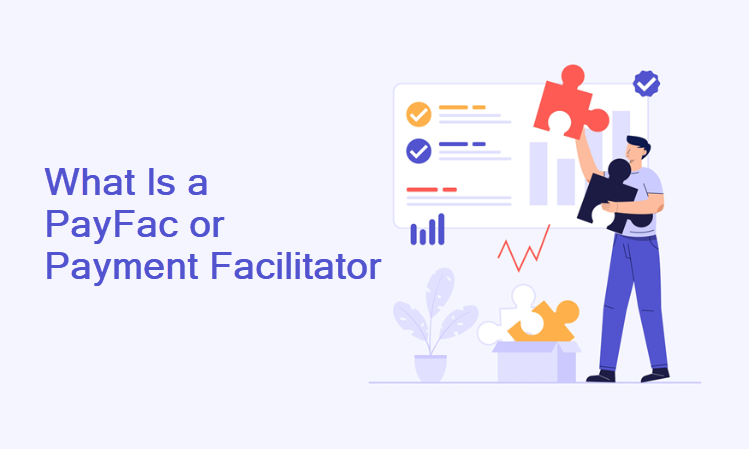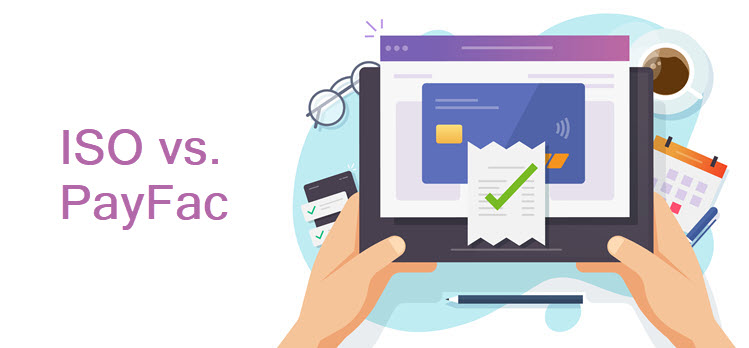


PayFacs or payment facilitators are one such solution. They allow merchants to quickly start accepting online payments, without having to open a merchant account with an acquirer (or acquiring bank).
In this article, learn all about PayFac, its functions, and its advantages for merchants.
A payment facilitator, or PayFac, is a payment service provider (PSP) that enables merchants to accept and process electronic payments via sub merchant accounts. They open merchant accounts with a merchant acquirer and onboard businesses as sub merchants to facilitate online and POS transactions. Usually, payment facilitators support a wide range of payment options, and it is up to the merchant to decide which payment methods they would like to offer to their consumers.
PayFac services are particularly useful to small and medium businesses who have low transaction volumes. SMBs benefit from not having to make hefty upfront investments into opening a merchant account. Businesses operating in a high chargeback rate industry also see great benefits from working with a PayFac because merchant acquirers usually avoid working with such businesses directly.

An Independent Sales Organization or ISO is a third-party company that partners with an acquiring bank to provide payment processing services to merchants by opening and managing merchant accounts for them for a fee.
The differences between ISOs and PayFacs include the following:
Payment facilitators set up a master merchant account that includes individual sub-merchant accounts. All sub-merchants’ transactions are bundled and processed in aggregate.
There are several functions of the PayFac, including:
Note: For more information on merchant account underwriting, refer to our article What is Merchant Account Underwriting and How Does It Work?.
Note: High chargeback rates can negatively impact a business. Learn how to keep yours in check in our article Chargeback Rate and How to Calculate It.
There are five payment facilitating participants:

There are many advantages for merchants with small and medium businesses who use payment facilitator services.
On the other hand, merchants also experience some downsides when using PayFacs.
Note: Learn everything you need to know about merchant credit card processing fees.
Payment facilitators allow merchants to efficiently accept electronic payments from their consumers. A PayFac handles most of the payment process and serves as the middleman between the merchant and the payment processor or assumes the role of the payment processor.
Payment facilitators are especially beneficial to high-risk merchants, who otherwise wouldn’t be able to receive electronic payments.
Ecommerce businesses today require a secure and efficient system for streamlining online payments. Innovative financial solutions in the payment processing industry allow merchants to manage payments from their customers safely and efficiently.
PayFacs or payment facilitators are one such solution. They allow merchants to quickly start accepting online payments, without having to open a merchant account with an acquirer (or acquiring bank).
In this article, learn all about PayFac, its functions, and its advantages for merchants.
A payment facilitator, or PayFac, is a payment service provider (PSP) that enables merchants to accept and process electronic payments via sub merchant accounts. They open merchant accounts with a merchant acquirer and onboard businesses as sub merchants to facilitate online and POS transactions. Usually, payment facilitators support a wide range of payment options, and it is up to the merchant to decide which payment methods they would like to offer to their consumers.
PayFac services are particularly useful to small and medium businesses who have low transaction volumes. SMBs benefit from not having to make hefty upfront investments into opening a merchant account. Businesses operating in a high chargeback rate industry also see great benefits from working with a PayFac because merchant acquirers usually avoid working with such businesses directly.

An Independent Sales Organization or ISO is a third-party company that partners with an acquiring bank to provide payment processing services to merchants by opening and managing merchant accounts for them for a fee.
The differences between ISOs and PayFacs include the following:
Payment facilitators set up a master merchant account that includes individual sub-merchant accounts. All sub-merchants’ transactions are bundled and processed in aggregate.
There are several functions of the PayFac, including:
Note: For more information on merchant account underwriting, refer to our article What is Merchant Account Underwriting and How Does It Work?.
Note: High chargeback rates can negatively impact a business. Learn how to keep yours in check in our article Chargeback Rate and How to Calculate It.
There are five payment facilitating participants:

There are many advantages for merchants with small and medium businesses who use payment facilitator services.
On the other hand, merchants also experience some downsides when using PayFacs.
Note: Learn everything you need to know about merchant credit card processing fees.
Payment facilitators allow merchants to efficiently accept electronic payments from their consumers. A PayFac handles most of the payment process and serves as the middleman between the merchant and the payment processor or assumes the role of the payment processor.
Payment facilitators are especially beneficial to high-risk merchants, who otherwise wouldn’t be able to receive electronic payments.